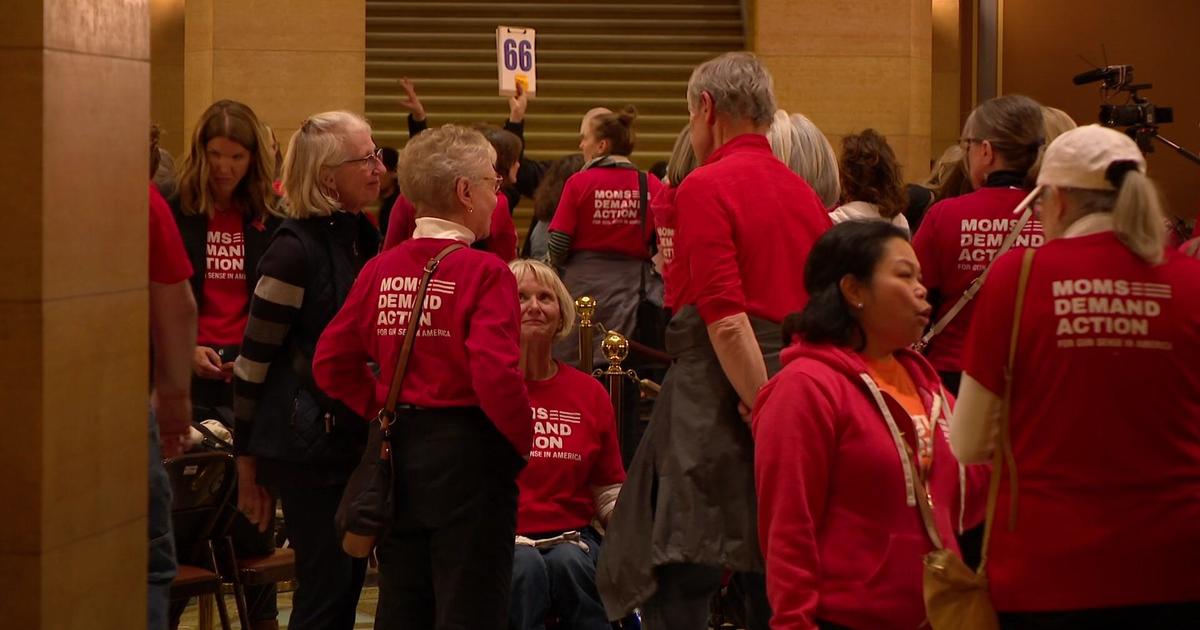Options Politically Tough For Immediate Minn. Cuts
ST. PAUL, Minn. (AP) -- A proposal to cut $200 million from Minnesota's state agency budgets before July is running into political difficulties because it could hit popular programs.
Republicans in both legislative chambers are sponsoring the legislation as part of a $1 billion deficit-reduction package. The $200 million would come immediately by targeting unspent and unobligated funds. The bill is slated for a vote on the House floor later this week.
The GOP bills don't say what they would cut. But The Associated Press got information Tuesday from six state agencies with nearly $70 million in unspent money set aside for programs including disaster aid to communities ravaged by floods and tornadoes last year, emergency grants for veterans and financial aid for college students, including National Guard members, already starting their spring semesters.
Senate Finance Committee Chairwoman Claire Robling, R-Jordan, said she plans to amend her bill Wednesday so it won't result in cuts to tuition aid, disaster aid, veterans' programs, prisons or job training programs. Robling said she'll ask for $125 million in reductions instead.
"We want to be realistic, as close as we can be, but we don't want to let them off and think that they can tuck money away, either," Robling said.
House Ways and Means Committee Chairwoman Mary Liz Holberg, R-Lakeville, said last week that going after the unspent cash would pre-empt "Christmas in June," when state agencies use up their appropriations by making impulse purchases on upgrades and other items.
The proposal is majority Republicans' first major attempt to whittle down a $6.2 billion budget shortfall projected for the next two years.
The bills would leave it up to Democratic Gov. Mark Dayton to make the immediate cuts. Figures from Minnesota Management and Budget show that slightly less than $195 million in unspent and unencumbered funds remained in the state's general fund as of last week. Funds are considered encumbered when a state agency obligates the money for a specific purpose in the state accounting system.
Democrats argued that Dayton would have little choice but to pull back all the unspent money if the $200 million version of the bill became law.
"The governor wouldn't have much flexibility at all even though they could say rhetorically, 'Well, we're just saying that's the governor's decision.' But is it really a decision when you've got only $200 million left?" said Rep. Lyndon Carlson, DFL-Crystal.
Dayton has said he doesn't want to erase the deficit in "piecemeal" fashion.
State agencies including the departments of Veterans Affairs, Employment and Economic Development, and Corrections confirmed they have programs that fall into the unspent category. Those include $2.7 million for the State Soldiers Assistance Program, $10 million in flooding disaster assistance grants for businesses and $11.6 million for prison utilities, repairs and supplies such as toilet paper and inmate clothing.
Unspent money for the Minnesota National Guard includes almost $2.4 million for tuition reimbursement and another $900,000 for the "Beyond the Yellow Ribbon" reintegration program for troops and their families during and after deployments, Lt. Col. Kevin Olson said.
Also unspent: $12 million in flood and tornado disaster aid approved in a special session last fall.
That money will cover the state's portion of disaster grants, with the Federal Emergency Management Agency paying three-quarters of the cost, said Minnesota Homeland Security and Emergency Management Director Kris Eide. Hundreds of local governments have applied for cash to repair roads, bridges, buildings, parks and utilities, but the process is still ongoing.
"I don't think that the legislators would want to go back to their constituents and say, 'We're sorry, you'll have to come up with a 25 percent FEMA match because the state unobligated the money," Eide said. "This was a bilateral, bipartisan bill."
Another large unspent item is about $27 million in student grants funneled through the Minnesota Office of Higher Education. About 85,000 students are expected to receive grants this school year, averaging about $2,100 for full-time students. Spokeswoman Barb Schlaefer said students are counting on the awards, but the state doesn't pay them until colleges and universities draw the money.
"We don't anticipate extra funds left over at the end of the fiscal year," she said.
The bill would require Management and Budget to reduce the spending by the end of the state's fiscal year on June 30. Public schools and public universities and colleges would be off limits, though the budget bill tabs higher education for cuts that would take effect starting in July.
(© Copyright 2011 The Associated Press. All Rights Reserved. This material may not be published, broadcast, rewritten or redistributed.)



